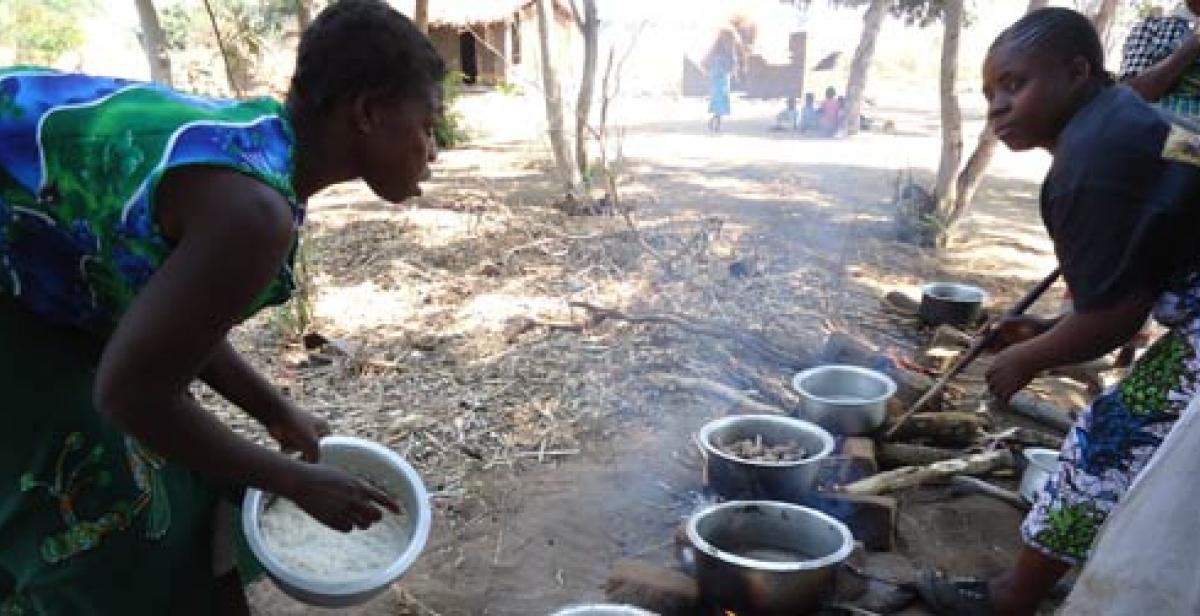On the 12th October we visited Kalolo village, about an hour’s drive from Lilongwe. Malawian villages are organised hierarchically with a Traditional Authority (in this village, Traditional Authority Kalolo), Group Village Headman, of which there is approx. 198 in Kalolo and Village Headmen.
Spending the day with the Chief’s wife really opened the girls’ eyes to a Malawian woman’s typical day. Our first task was to prepare lunch for everyone. The kitchen was outdoors and with dogs, chickens and roosters it was definitely a unique cooking experience. It consisted of some pots and some firewood and knives without handles. The fact that there was no electricity or gas did not stop the cooking as the women were very resourceful, using maize cobs and firewood to maintain the fire.
We cracked nuts for them to be roasted, picked stones from rice and sifted maize. Slicing onions, tomatoes and cabbages became a difficult task due to the absence of utensils such as chopping boards which we are used to at home. Some of the girls pulled the maize from the cobs as part of the preparation for nsima and prepared pumpkin leaves. Blisters were the order of the day following all hours of cooking and cleaning. The food – rice, beef stew, coleslaw and the Malawian traditional dish nsima - turned out well. As someone who doesn’t cook back home, mamma would be proud! But even the thought of doing this again in no less than three hours for dinner was tiring.
Whilst the girls were hard at work, the boys drank home brewed spirits, observed traditional court cases and gave a hand in building a thatched roof.
We all had an opportunity to walk around the village. Some of us fetched water from the pump which is the main water source. Although we did not carry it the traditional way – on our heads – I’m sure that we will be pros by the time we leave. We also came across men building a house and a brewery which made homemade beer and spirit from fermented maize.
Overall, it was an enjoyable experience and sparked questions such as the division of roles. In the village, everyone has their own roles depending on gender. It is easy to dismiss the jobs as being based on sexist ideas, but whether you think that Malawi has not moved on with the times or you admire their way of life, there is a real sense of community. There is an understanding that each villager has a responsibility which must be carried out in order to ensure life runs smoothly. Women understand that they are to prepare meals and raise children. Men understand that they are to provide shelter and hunt for food. Although it is up for debate who does more work, from first-hand experience we would say that the undeniably strong Malawian women rule the roost.
Blog by ICS Empower volunteer Barbara Eze visiting Kalolo village.
Photo: Women cooking in a village in Malawi.



